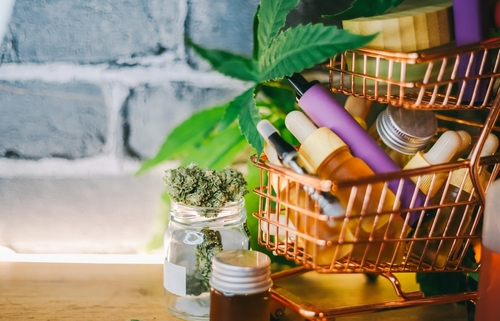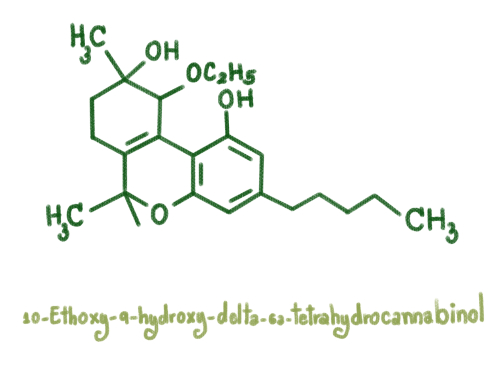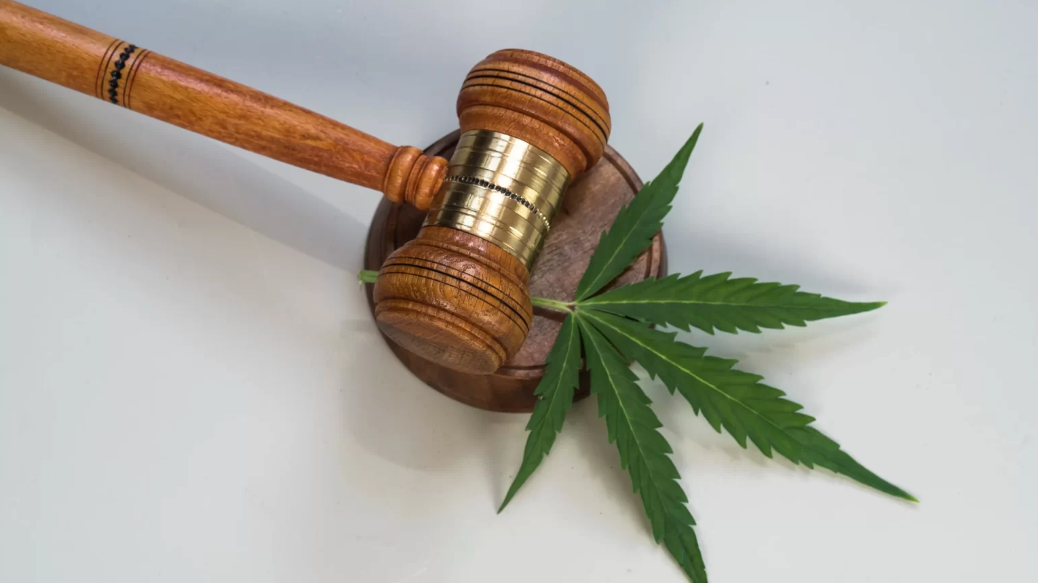What Is THCP?

Delta-9 THC is familiar to even cannabis novices these days as it is in products seemingly everywhere, and the wellness markets are taking notice of its benefits. Similarly, CBD generates plenty of buzz thanks to the fact that it is available in everything from gummies to oils to vapes. Those are two of the best-known compounds we extract from the cannabis plant, but following closely behind them is THCP.
If you are not familiar with THCP, read on to learn about what may be one of the next big things in consumer cannabis products.
What Is THCP?
While the cannabis plant has been used for its benefits for thousands of years, it was not until very recently that we discovered THCP. In 2019, this compound was isolated from the plant by scientists for the first time.
The naming convention for THCP illustrates its similarity to THC. Whereas THC represents delta-9 tetrahydrocannabinol, THCP is short for delta-9 tetrahydrocannabiphoral. Both of these compounds are present in cannabis; however, delta-9 THC is present in much larger quantities, which is one of the reasons it is used in more consumer products. It is simply easier to extract in commercial quantities. THCP is less prevalent in the cannabis plant, so researchers found ways to create it through a conversion process, turning other compounds such as THC or CBD into THCP.
Perhaps the only thing more amazing than the cannabis plant and its hundreds of compounds is what we can do with it once scientists get involved!
THCP Structure and Potency
The chains of atoms making up compounds in the cannabis plant are where we see the variations that not only define these compounds in terms of structure but also in terms of how they work in our bodies to provide a variety of reactions, from a mellow high to an uplifting and euphoric buzz.
THCP has a similar structure to THC, and the two are distinguished by THC's pentyl chain (which means it has five carbon atoms) and THCP's propyl chain (which means it has three carbon atoms).
Chances are, you are less interested in these scientific notes and more interested in what THCP means in terms of effects, so let's get to that! You may be wondering about trying THCP products and perhaps swapping out your favorite gummy or vape for something that packs a little more punch.
THCP does indeed pack a bigger bunch: it is believed to bind to our bodies' CB1 receptors up to 33 more times than THC does. In plain English, this means it is a significantly "higher high."
We still have a great deal to learn about THCP and its effects, along with many of the other lesser-known compounds in the cannabis plants.
THCP: What We Know So Far
In the handful of years that THCP products have been available, anecdotal evidence has surfaced pointing to this compound as one that creates more intense effects than THC.
Therefore, it is reasonable to assume many users would want to start out with smaller doses of THCP than they would with delta-9 THC, for example.
The key takeaways when it comes to THCP in cannabis consumer products are
- THCP occurs naturally in cannabis, but because it is only present in small quantities, manufacturers use a conversion process to make larger quantities for various products.
- THCP may be available on its own or combined with other compounds in products such as gummies, flower, or vapes.
- THCP produces stronger effects than THC, and in many cases, it may be more appropriate to use in evening hours versus daytime activities, where it may interfere with productivity.
- Large amounts of THCP can produce sedative effects, and users should always refer to a manufacturer's specific dosing guidelines.
- It is always best to start small with THCP: play it safe until you understand how the compound affects your own body.
- Always buy from a trusted and reputable manufacturer: this does for THCP and any other cannabis product.
Will THCP Cause Me to Fail a Drug Test?
THCP will show up in drug screenings just as you would expect from delta-9 THC. Abstain from using THCP products if you know you are going to be tested by an employer.
Urine tests are typically used to detect THC, THCP, and other compounds. These compounds may be present in urine anywhere from a few days to six weeks after the last use. When it comes to a saliva test, THCP may register on the test for up to 10 hours after the last use.
Is THCP Legal?
The 2018 Farm Bill made the distribution and sale of hemp-derived products containing less than 0.3% (dry weight) THC legal, and in most cases, that same law will apply to THCP.
However, the bill was specific to delta-9 THC and did not specifically name other compounds, though future legislation may address THCP, delta-8 THC, delta-10 THC, and others.
Even though the Farm Bill addressed hemp-derived THC at a federal level, there may be specific ordinances in your city or state that could make it illegal. Be sure to check specific state guidelines and stay in the know to consume and enjoy cannabis products legally and responsibly.
Does THCP Have Unwanted Side Effects?
When it comes to highly potent THCP, it is indeed possible to have "too much of a good thing." Because of its potency, THCP, in large doses, could lead to heightened anxiety or extreme drowsiness. Sticking with a really small dose to start could mean the difference between a mellow high and a buzz that is too intense for some tastes. Other potential side effects include dry mouth, nausea, red or dry eyes, and paranoia.
Alternatives to THCP
For those who want to stick with a more tried and true cannabis product, delta-9 THC is hard to beat. Realize drink mixes are a refreshing, tasty, and portable way to enjoy THC and CBD for the perfect uplifting buzz. CBD on its own can also provide some great benefits but with no psychoactive effects.
Whatever products you try, make sure you purchase them from a reputable manufacturer devoted to quality and safety. Realize stands proudly behind every product we produce with third-party lab testing and a commitment to ongoing research and development. We are always working to bring you the next best thing in cannabis.



